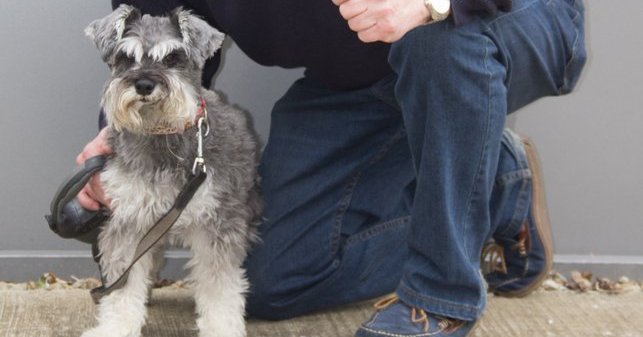
Everyone knows that dogs don’t always have sweet-smelling breath, but when Scout’s breath started to smell seriously unpleasant, Carl knew that something had to be wrong with her. It was hard to describe the smell, other than to say that it was “rotten”. Scout was not at all bothered by her halitosis: she continued to behave normally, eating well, and going for walks. But whenever she breathed out close to Carl, he felt overpowered by the stench of her breath.
He brought her to see me, and I had to sniff around her head, trying to pinpoint precisely where the pong was coming from. I was quickly able to narrow it down to the left side of her mouth, but I was still not sure what was causing it.
the main causes of halitosis in dogs
There are three main causes of halitosis in dogs.
First, some dogs have severe dental disease that causes a general build up of bacteria in the mouth leading to a strong odour. Scout’s teeth looked healthy, so this was definitely not the cause.
Second, the gases produced during food digestion cause some dogs to produce foul smelling gases from the stomach. Again, this was not the case with Scout: she is on a highly digestible diet, and the small was definitely coming from just the left side of her mouth. Digestive smells exude from the entire oral cavity rather than from just one part of it.
The third reason for halitosis is a focus of damage and infection in the mouth or on the lips. At first I thought that Scout might have an injury on her left lip, as she had a clump of matted fur here, mixed up with some foul smelling pus. I clipped off the fur, expecting to find a wound beneath it, but in fact, the lip itself was healthy. So where had this pus come from?
At this point, I had to give Scout a sedative: she refused to let me look into her mouth. Ten minutes later, she was relaxed and sleepy, and I was able to open her mouth to carefully inspect her entire oral cavity. I soon found what I was looking for: a ragged cut on the inside of her left cheek. The cut was infected, and this was definitely the source of the foul smell.
chasing sticks
I asked Carl if she ever chased sticks, and he immediately said “yes”, going on to explain their daily routine. They enjoy walking down the same country lane every day, and Scout loves playing a stick chasing game. She brings a stick to Carl, he throws it, and while she runs after it, he finds another stick, and he throws that one. She chases that one, then he finds another stick and throws it, and so it goes on and on. She chases the sticks so enthusiastically and at such speed that Carl could easily imagine that she could accidentally jab herself in the mouth with one.
I explained to Carl that chasing sticks is surprisingly dangerous for dogs, and some dogs have even died after impaling themselves at the back of the throat with a stick. Scout was lucky that she had just cut the inside of her cheek.
Scout is being treated with antibiotics, and I expect the stick wound to heal over the next couple of weeks.
Carl has already decided that their walk routine is going to change: there will be no more sticks. He has a tennis ball that she loves chasing as well, and from now on, that’s going to be the plan.
Carl – and Scout – have learned a valuable lesson: sticks are just too dangerous.




Please note that I am unable to answer veterinary questions in comments. If you have questions or concerns about your pet's health it is always better to contact your vet.